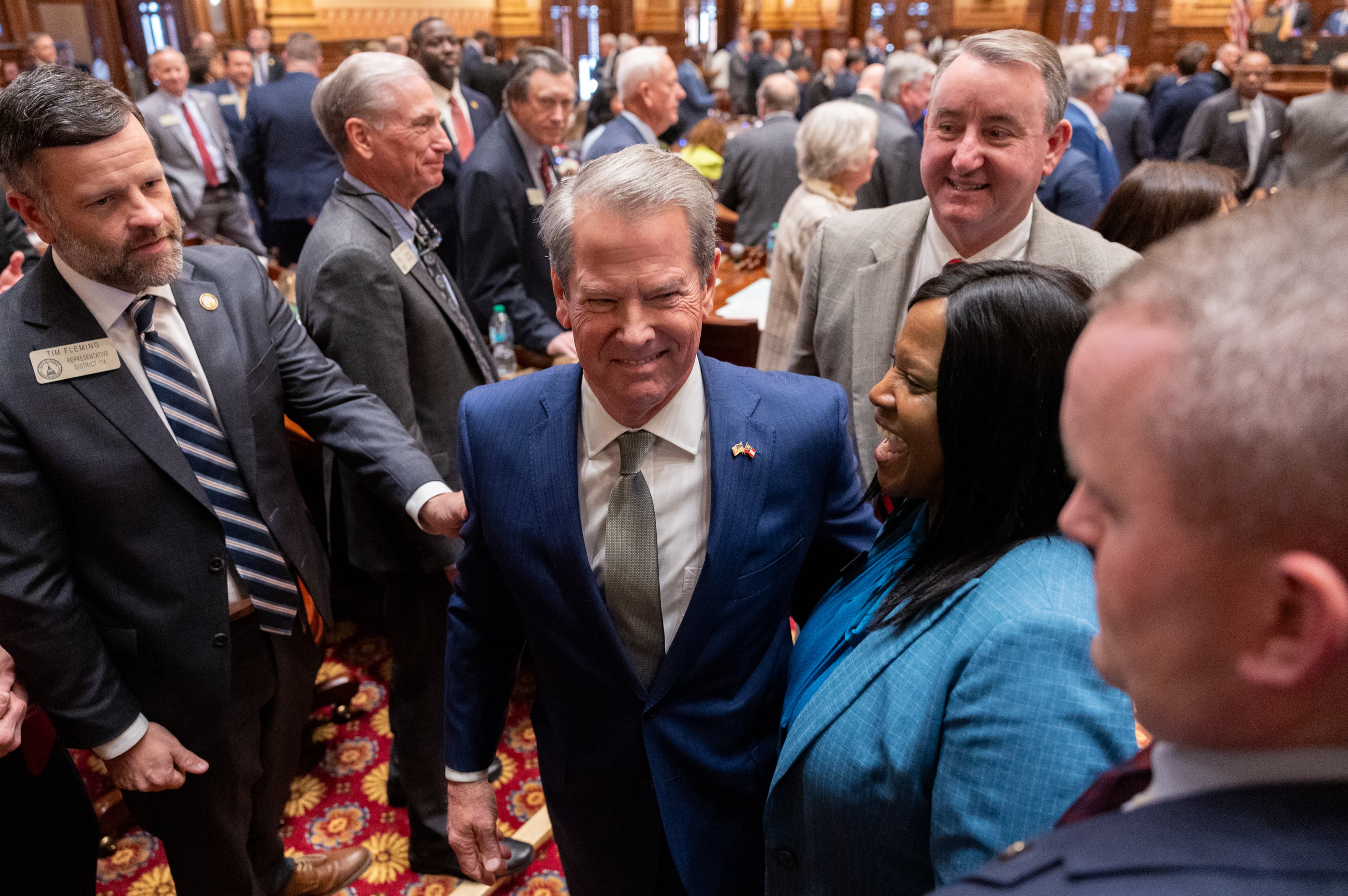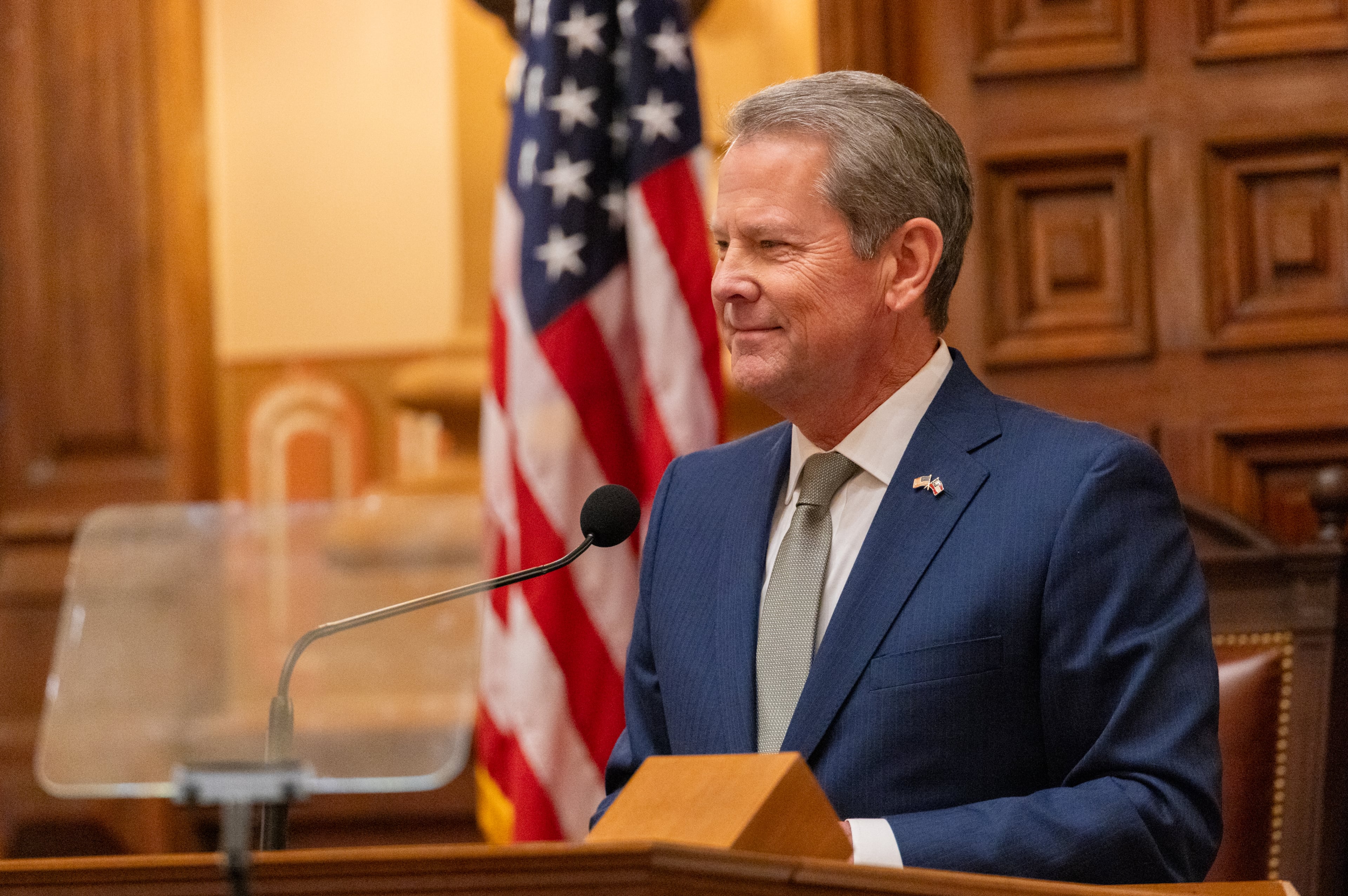Food stamp overhaul could pass as much as $812 million in costs to Georgia

The state of Georgia could be on the hook to pay hundreds of millions of dollars to maintain a popular federal program that helps poor families afford groceries.
The tax and spending bill passed by the U.S. House last week not only shifts Supplemental Nutrition Assistance Program costs to states, but it also implements new work requirements likely to lead to millions of people losing access to food stamps nationwide. The reconciliation bill also eliminates an educational program intended to help low-income families and students make smarter food choices and reduce childhood obesity.
Together, these changes represent the most drastic changes to SNAP since President Lyndon Johnson signed the Food Stamp Act of 1964. More than 1.4 million people in Georgia are SNAP recipients. That’s about one out of every eight Georgians. But that number is likely to drop significantly if the reconciliation bill becomes law in its current form.
The proposed cuts have people like Jennifer Owens worried about the impact on childhood hunger and obesity in Georgia. Owens is president of HealthMPowers, one of four nonprofits that used roughly $10 million in federal funding annually to carry out the SNAP-Ed educational programs in Georgia. SNAP-Ed would go away if the reconciliation bill, which passed the House last week, becomes law.
“There’s our piece of it, and then there’s just bigger ramifications around the changes to SNAP benefits and even Medicaid,” Owens said.
Owens said recipients impacted by SNAP changes are also likely to be hit with changes to Medicaid, the government insurance program for low-income families, the disabled and certain other groups.
“That’s still the same population that’s going to be impacted. So, in some ways, it’s like a perfect storm for folks who are just trying to do their best to put food on the table,” she said.

That perfect storm includes a new cost-sharing formula that requires states to pay between 5% and 25% of overall SNAP costs, with the share increasing based on a formula that corresponds with how often people receive benefits that are later found to have been in error. Georgia would be on the high end, and the liberal-leaning think tank Center on Budget and Policy Priorities in Washington estimates the state could be on the hook to pay up to $812 million a year for its share of SNAP starting in 2028.
Republicans who back the bill say the cost-sharing is intended to penalize states with higher levels of waste, fraud and abuse, as highlighted by the error rates. But critics say errors usually reflect human mistakes, either by the applicant or staff processing paperwork, and that most people are eligible for the program but may receive an incorrect allotment of benefits.
U.S. Rep. Buddy Carter, the St. Simons Island Republican who is now running for Senate, said the changes are intended to make the program more efficient, but he doesn’t think there will be drastic effects in Georgia.
“SNAP is going to be a better program,” Carter said recently. “Is it going to have some impact on some of the states? It probably will. Georgia will not be significant at all.”
The House bill requires leaders in Georgia and every other state to find the money the federal government says it now owes for its share of the food stamps received by families. States could also decide to adjust the overall program to reduce costs to a more manageable amount.
“So, that’s fewer resources becoming available for SNAP benefits, and in order to meet those lower-level targets, there’s going to have to be cuts to the program in some way, shape or form for the state to stay under those levels,” said Ife Finch Floyd, director of economic justice at the left-leaning Georgia Budget and Policy Institute.
The reconciliation bill also requires states to pay more to cover the administrative costs of the program. States that decide the costs are too high could withdraw from SNAP altogether, meaning residents wouldn’t be eligible for benefits.
The bill also increases work requirements for nondisabled adults receiving food stamps, applying these standards to more parents and older people. Republicans say that able-bodied adults can work or volunteer to earn their place in the program, but these changes are likely to result in people losing benefits if they don’t meet the requirements.
U.S. Sen. Raphael Warnock released a report this month that predicted Georgia families would lose more than $860 million in food stamps benefits under the House-passed bill, with families in rural counties affected the most.
“This proposal is bad for Georgia. It’ll make it more likely that children, seniors, veterans and individuals with disabilities go hungry,” Warnock, an Atlanta Democrat, said in a statement accompanying the report.
The study also said that Georgia grocers and other retailers received more than $3.6 billion in revenue in 2023 directly from people using their SNAP benefits for purchases. That amount is likely to decline if fewer people are enrolled in the program or their monthly allocations are reduced to cut costs.
HealthMPowers was founded 25 years ago by Andy Isakson, the brother of late U.S. Sen. Johnny Isakson. It works with schools, especially Title I sites with a high concentration of low-income students, to promote healthy eating and wellness.
The organization receives about $4 million from the state each year, and Owens said about 100,000 students are reached through activities at more than 150 different program sites.
The reduced spending on this and other SNAP programs is estimated to put millions nationwide at risk of losing access to a program that has for decades been credited with improving health outcomes for low-income families.
The work requirement alone is estimated by the Center on Budget and Policy Priorities to possibly result in 382,000 Georgians losing their food stamps benefits.
Owens said childhood obesity causes preventable chronic health conditions, and the SNAP program and educational initiatives were a relatively low-cost method to address it. With reduced spending and fewer people having access, there could be ramifications for years to come.
“The sooner we get kids thinking about healthier behaviors, the more long-term savings we’re going to have, certainly as a nation, but our health care system as a whole,” she said. “And I hope that members of Congress will make that connection. This is going to cost us more money in the long run.”



